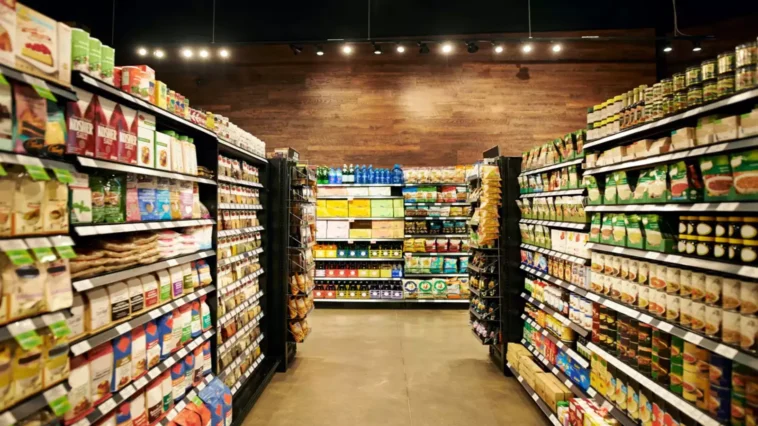The Fast-Moving Consumer Goods (FMCG) sector is a critical component of India’s economy, ranking as the fourth-largest segment. This sector encompasses products essential to daily life, including personal care items, household goods, packaged foods, beverages, and over-the-counter medicines. These goods are characterized by their high turnover rate, making them staples for consumers across urban and rural landscapes.
Over the past decade, the Indian FMCG market has witnessed remarkable growth, driven by urbanization, rising incomes, and evolving consumer preferences. Between 2011 and 2018, the industry’s revenue surged from $31.6 billion to $52.8 billion, representing an impressive compound annual growth rate (CAGR) of 21.4%. Projections for 2020 estimated the market’s value at $103.7 billion, showcasing the potential of this dynamic sector. Additionally, the rural FMCG market was expected to grow at a CAGR of 14.6%, reaching $220 billion by 2025, indicating the untapped potential of non-urban areas.
Key Drivers of Growth in the FMCG Sector
Several factors contribute to the robust growth of the FMCG sector in India:
- Rising Disposable Income: With increasing economic development, consumers now have more spending power, which has directly boosted demand for FMCG products.
- Urbanization: The migration of populations to urban areas has amplified the demand for packaged, convenient, and ready-to-use products.
- Changing Lifestyles: Modern lifestyles have shifted preferences toward convenience, leading to higher consumption of ready-to-eat foods, personal care products, and household items.
- Government Initiatives: Policies focused on improving rural infrastructure, digital connectivity, and consumer awareness have expanded market access across previously underserved regions.
Top FMCG Companies in India
Several companies have emerged as leaders in the FMCG sector, leveraging innovation, robust distribution networks, and strong brand equity to dominate the market. As of November 2024, the top 10 FMCG companies in India are:
1. ITC Limited
ITC Limited is the largest FMCG company in India, with a market capitalization of ₹5.84 lakh crore. Established in 1910, ITC has diversified its offerings to include cigarettes, packaged foods, personal care products, and hospitality. Its extensive rural and urban distribution network ensures its products are accessible across the country.
2. Hindustan Unilever Limited (HUL)
HUL, with a market capitalization of ₹5.62 lakh crore, is a household name in India. Founded in 1933, the company’s product portfolio includes personal care, home care, and food items. Its iconic brands such as Lux, Dove, and Surf Excel enjoy widespread consumer trust.
3. Nestlé India Limited
Nestlé India, a subsidiary of the global conglomerate, holds a market cap of ₹2.10 lakh crore. Established in 1961, it focuses on nutrition, health, and wellness products. Popular brands like Maggi, Nescafé, and KitKat have made Nestlé synonymous with quality and innovation in the Indian market.
4. Varun Beverages Limited
With a market capitalization of ₹1.88 lakh crore, Varun Beverages is a leading player in India’s beverage sector. The company is the largest bottling partner for PepsiCo in India and has a stronghold in both urban and rural markets.
5. Godrej Consumer Products Limited
Godrej Consumer Products boasts a market capitalization of ₹1.20 lakh crore and offers an array of personal and household care products. Its well-known brands, including Good Knight and Cinthol, are trusted by millions across India.
6. Britannia Industries Limited
Founded in 1892, Britannia Industries has a market capitalization of ₹1.18 lakh crore and is a leader in the packaged food segment. Its popular products, including Good Day biscuits and Marie Gold, are staples in Indian households.
7. United Spirits Limited
United Spirits, valued at ₹1.04 lakh crore, dominates the alcoholic beverages sector in India. The company’s portfolio includes premium and mass-market brands catering to diverse consumer preferences.
8. Tata Consumer Products Limited
Tata Consumer Products, with a market capitalization of ₹0.92 lakh crore, focuses on beverages like tea and coffee. Its flagship brands, such as Tata Tea and Tata Coffee, are leaders in their respective categories.
9. Dabur India Limited
Dabur, a pioneer in Ayurvedic and natural products, holds a market capitalization of ₹0.90 lakh crore. Established in 1884, its offerings in personal care, healthcare, and food products cater to a loyal customer base across India.
10. Marico Limited
With a market capitalization of ₹0.76 lakh crore, Marico specializes in beauty and wellness products. Its iconic brands, Parachute and Saffola, lead their respective segments.
Resilience and Future Outlook
The FMCG sector’s resilience is evident from its ability to adapt to changing economic conditions and consumer behaviors. Despite challenges such as inflation and supply chain disruptions, the sector continues to thrive. For instance, in Q4 2023, the industry reported a 6% growth in value, driven by a 6.4% increase in volume, highlighting strong consumer demand.
In addition to its economic contributions, the FMCG sector provides significant employment opportunities. It employs over 3 million people, accounting for 5% of total factory employment in India.
Looking ahead, the Indian FMCG market is poised for sustained growth. Factors like digital transformation, rising consumer awareness, and expansion into rural markets will further solidify its position as a cornerstone of the Indian economy. The sector’s ability to innovate and meet evolving consumer needs ensures that it will continue to play a vital role in shaping India’s economic landscape.



